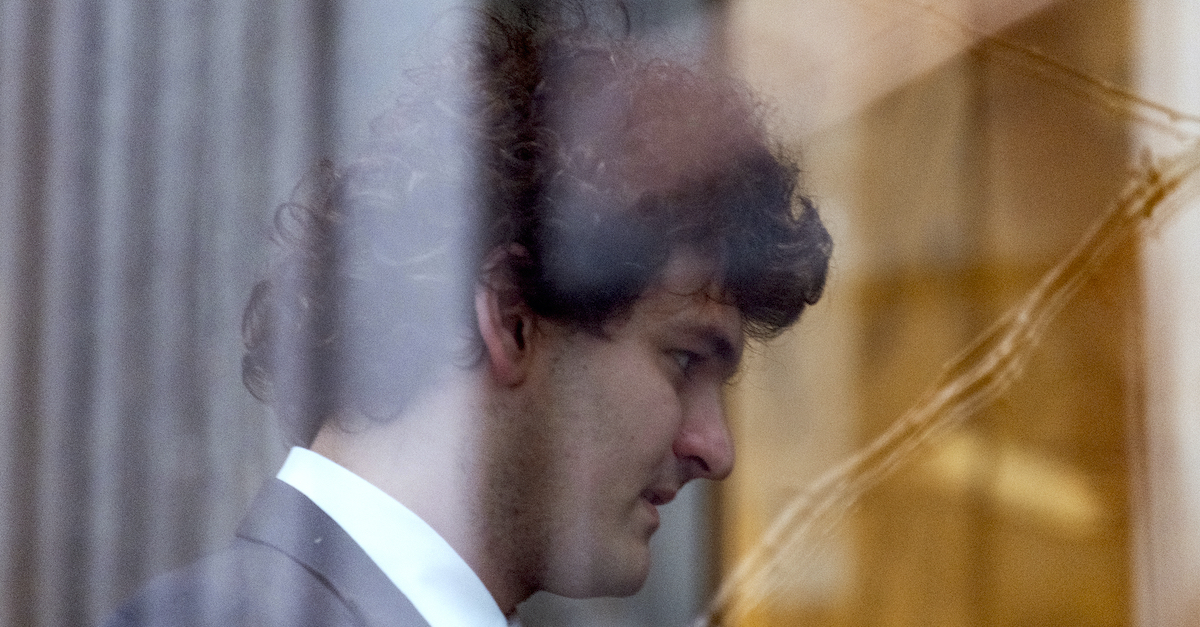
Cryptocurrency entrepreneur Sam Bankman-Fried arrives for an appearance at Manhattan federal court Tuesday, Jan. 3, 2023, in New York. (AP Photo/Craig Ruttle)
FTX founder Sam Bankman-Fried returned to court on Thursday for a hearing to determine the conditions of his pretrial release, after prosecutors discovered his encrypted communications with his company’s general counsel.
Senior U.S. District Judge Lewis Kaplan held both the government and the defendant’s feet to the fire about how to keep him from contacting key witnesses as he awaits trial.
“I am far less interested in the defendant’s convenience, given the record here,” Judge Kaplan told Bankman-Fried’s lawyer.
The brief hearing ultimately proved inconclusive: Kaplan urged the parties to ratchet up monitoring over all avenues of communication and send a more restrictive proposal to him for his approval.
Bankman-Fried has been out on bond and living in his parents’ California home ever since being charged late last year on an eight-count indictment alleging wire fraud, conspiracy and campaign finance violations. The Department of Justice and the Securities and Exchange Commission claim that the 30-year-old cryptocurrency mogul raised more than $1.8 billion from FTX investors, while allegedly diverting his customers’ money to Alameda Research LLC, his privately-held hedge fund.
Currently free on a $250 million bond, Bankman-Fried faced questions late last month after prosecutors learned about his Signal message and email to FTX’s current general counsel. That lawyer’s name is shielded in court papers but is known to be Ryne Miller.
“I would really love to reconnect and see if there’s a way for us to have a constructive relationship, use each other as resources when possible, or at least vet things with each other,” Bankman-Fried wrote in a message on Jan. 15, 2023. “I’d love to get on a phone call sometime soon and chat.”
Prosecutors called it a possible effort to influence witness testimony, but Bankman-Fried’s lawyers claim that their clients had been offering to assist in FTX’s bankruptcy process.
The government rejected the innocent explanation.
On Monday, Bankman-Fried’s attorney Mark S. Cohen wrote a letter suggesting that the government reached an agreement barring his client from using “any encrypted or ephemeral call or messaging application, including but not limited to Signal” — with some notable exceptions.
“The defendant shall be permitted to place voice calls, FaceTime calls, and Zoom audio and video calls, and use iMessage, SMS text message, email, and Facebook messenger,” the proposed revision states. “The defendant shall be permitted to use WhatsApp only if monitoring technology is installed on his cellphone that automatically logs and preserves all WhatsApp communications.”
Judge Kaplan had qualms about both the condition and the exceptions, asking what the government meant by “encrypted.”
The judge noted that scholars recently discovered encrypted communications about Mary Queen of Scots.
“You don’t think this defendant is bright enough to encrypt something without a computer?” Kaplan asked, pointedly.
He added that the government’s agreement with defense counsel on this issue doesn’t end the matter.
“The fact that you’ve negotiated something that makes the government sort of comfortable and that makes you and your client comfortable doesn’t necessarily make me comfortable,” Kaplan said.
Even before the hearing, there were signs that Judge Kaplan had qualms about the proposed arrangement. The defense team proposed canceling Thursday’s oral arguments if he found the government’s agreement with Bankman-Fried acceptable, but Kaplan didn’t cancel it.